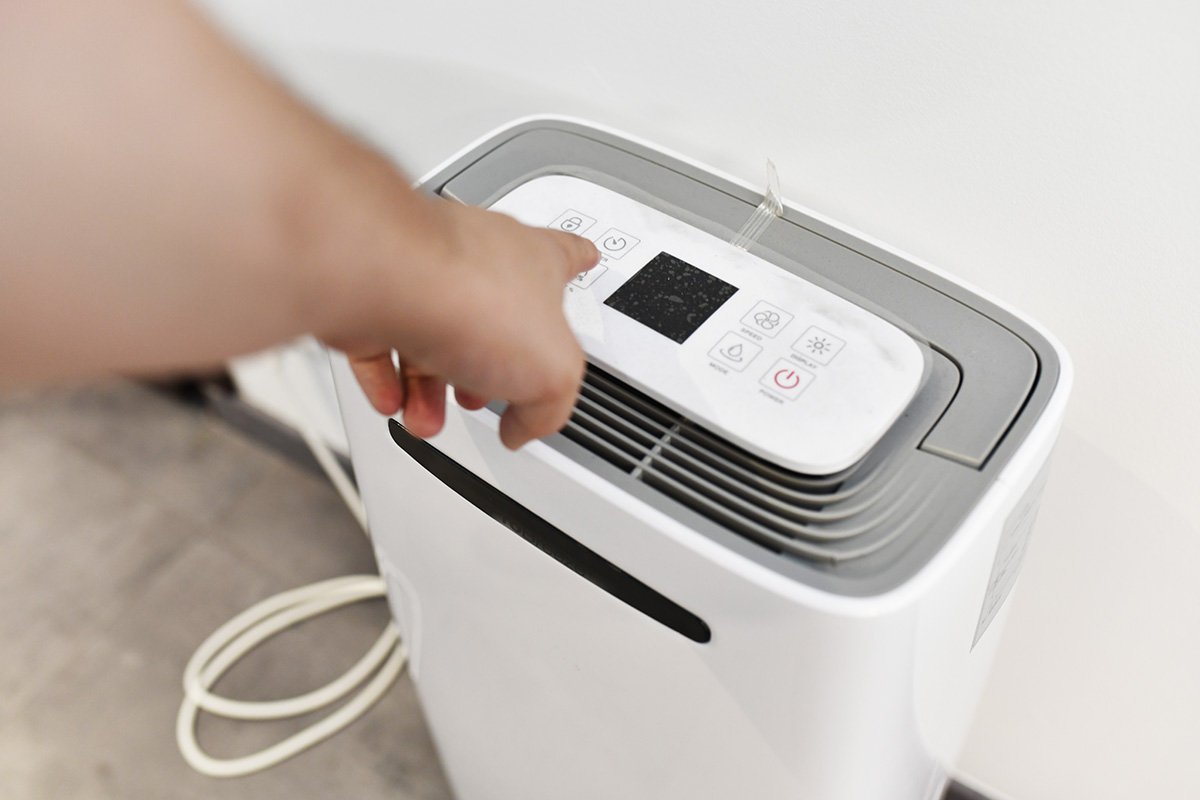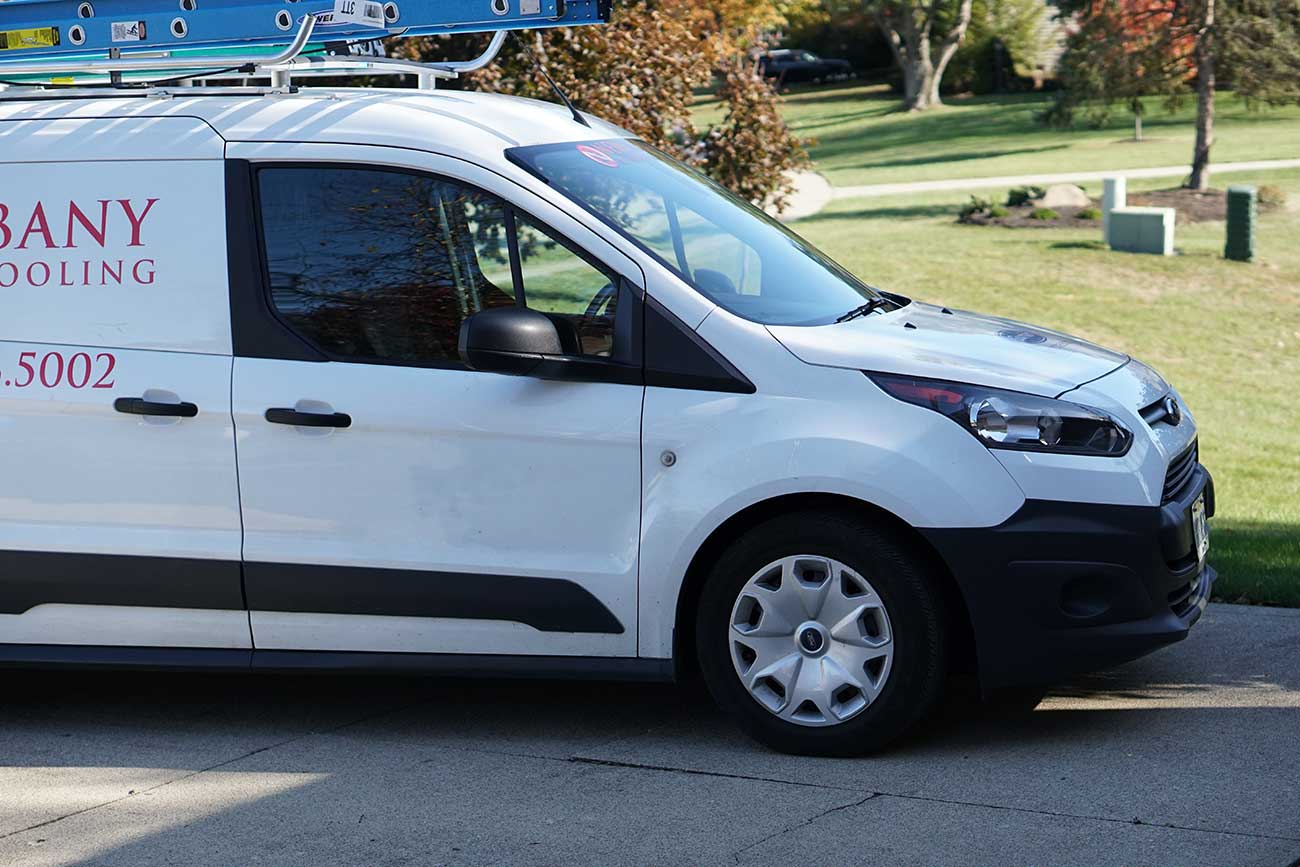What is a Dehumidifier?
Dehumidifiers are electric-powered appliances that reduce the level of humidity in the air in a home and help manage levels for health or comfort reasons. Dehumidifiers also help eliminate musty odors and prevent mildew growth. They work by extracting moisture from the air. Dehumidifiers can be used in homes and in businesses.
They work by extracting water from air as it passes through the unit. There are two types of dehumidifiers. There are desiccant dehumidifiers and condensate dehumidifiers.
Condensate dehumidifiers use a refrigerator to collect water while desiccant dehumidifiers (also known as absorption dehumidifiers) bond moisture with hydrophilic materials like silica gel.
The best dehumidifiers on the market, or the highest rated dehumidifiers, are made by Aprilaire. Aprilaire dehumidifiers were also recognized as ENERGY STAR Most Efficient for 2021. New Albany Heating & Cooling offers dehumidifiers by Aprilaire, including their 1800 series, 100 series and crawlspace dehumidifier.

When to Use a Dehumidifier
The best time to use a dehumidifier is when the days feel especially humid in your home. Signs your home is humid should be evident as it makes it stick and uncomfortable. This can cause breathing issues. The relative humidity should be less than 50 percent. You should use one if it goes above this level. Even if it doesn’t however, using a dehumidifier will help your air conditioner and save on home cooling costs.
Are dehumidifiers worth it?
Using a dehumidifier will help take the humidity down in a humid home, which is usually during the summer. These devices can also lower the buildup of mold and dust mites. If you already have any mold in your home, using a dehumidifier won’t remove it. It will need to be taken out. Dehumidifiers will, however, lower or eliminate additional mold growth.
For one you’ll have better, cleaner air. When your residence has the right humidity level, it’s less prone to create a condition in which mold and mildew can develop and proliferate. Because it helps your A/C, you’ll have lower energy consumption and cost. Dehumidifiers reduce condensation and improve overall health in the home. The benefits outweigh the cost overall and in some cases, it pays for itself.
When should I turn my dehumidifier on in the summer?
There are a few obvious signs when a homeowner should use a dehumidifier. Dehumidifiers are a must when you see: dampness on windows, peeling paint, mildew growth, musty odors. However, even when the effects of humidity aren’t very obvious, this device can be an important summertime tool to use in your home, effectively reducing the workload for your central cooling system.
Benefits of Dehumidifier Installation
Save Money, Help A/C
Dehumidifiers lower energy costs to keep your home cool during the summer because the system helps your air conditioner run more efficiently.
Better Indoor Air Quality
They improve your home’s air quality, making your home less prone to allergens such as dust mites and dander. They also inhibit the growth of mold, and mildew.
Reduce Offensive Odors
Dehumidifiers help minimize odors that often accompany mold and mildew growth — getting rid of that “musty” or “rotting” smell that’s often pungent and offensive.
They’re Quiet
They are not disruptive to your daily life, and run quietly and efficiently in the background without most people even noticing.
Better for Health
Dehumidifiers minimize irritation to your skin and improve all kinds of breathing-related conditions for your respiratory system. This helps homeowners and residents breathe easier, sleep better, and feel a lot more comfortable in their homes.
Protects Belongings
A less humid home means clothing will dry faster, cereals, breads and other dry foods will remain fresh longer without going stale, and you won’t find signs of rust or corrosion on things like computer equipment, tools and electronics.
Cleaner Home
Using a dehumidifier will assist in reducing dust in the home, so you won’t have to clean as often.
Reduce Wear on A/C
When the air in your home is more humid, the air conditioner has to not only cool the air but also remove all the excess moisture, which means it has to work harder. This also causes the A/C to wear out sooner, which means you will need to repair it more often and possibly replace it sooner.









